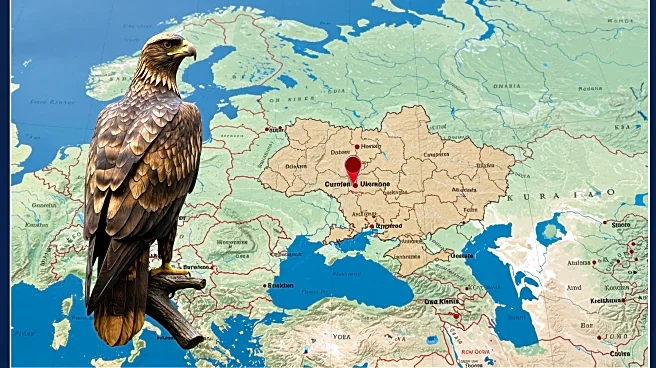What's Happening?
President Trump has reportedly communicated to Ukraine's leader that Russian President Vladimir Putin has proposed a freeze on the frontlines if Ukraine agrees to withdraw from the Donetsk and Luhansk regions in the Donbas area. This development comes amidst ongoing tensions and conflict between Russia and Ukraine. The proposal suggests that Russia would halt its military advances in other areas if Ukraine complies with the withdrawal demand. This stance marks a significant shift from previous ceasefire negotiations, which have not included such territorial concessions.
Why It's Important?
The proposal supported by President Trump could have substantial implications for the geopolitical landscape in Eastern Europe. If Ukraine agrees to the withdrawal, it may lead to a temporary de-escalation of hostilities, potentially reducing immediate military conflict. However, it also raises concerns about the sovereignty and territorial integrity of Ukraine, as ceding control of the Donbas region to Russia could set a precedent for future territorial disputes. European allies of Ukraine may view this as a concession to Russian aggression, potentially straining international relations and alliances.
What's Next?
The next steps involve Ukraine's decision on whether to accept the proposal, which could lead to diplomatic negotiations or further conflict. Major stakeholders, including European nations and NATO, are likely to react to this development, influencing the broader international response. The situation remains fluid, with potential for either diplomatic resolution or continued military engagement depending on Ukraine's actions and international pressure.
Beyond the Headlines
The ethical and legal implications of territorial concessions in conflict zones are significant. Accepting the proposal could undermine international norms regarding territorial integrity and sovereignty. It may also affect the long-term stability of the region, as similar demands could arise in other contested areas, challenging the existing international order.










